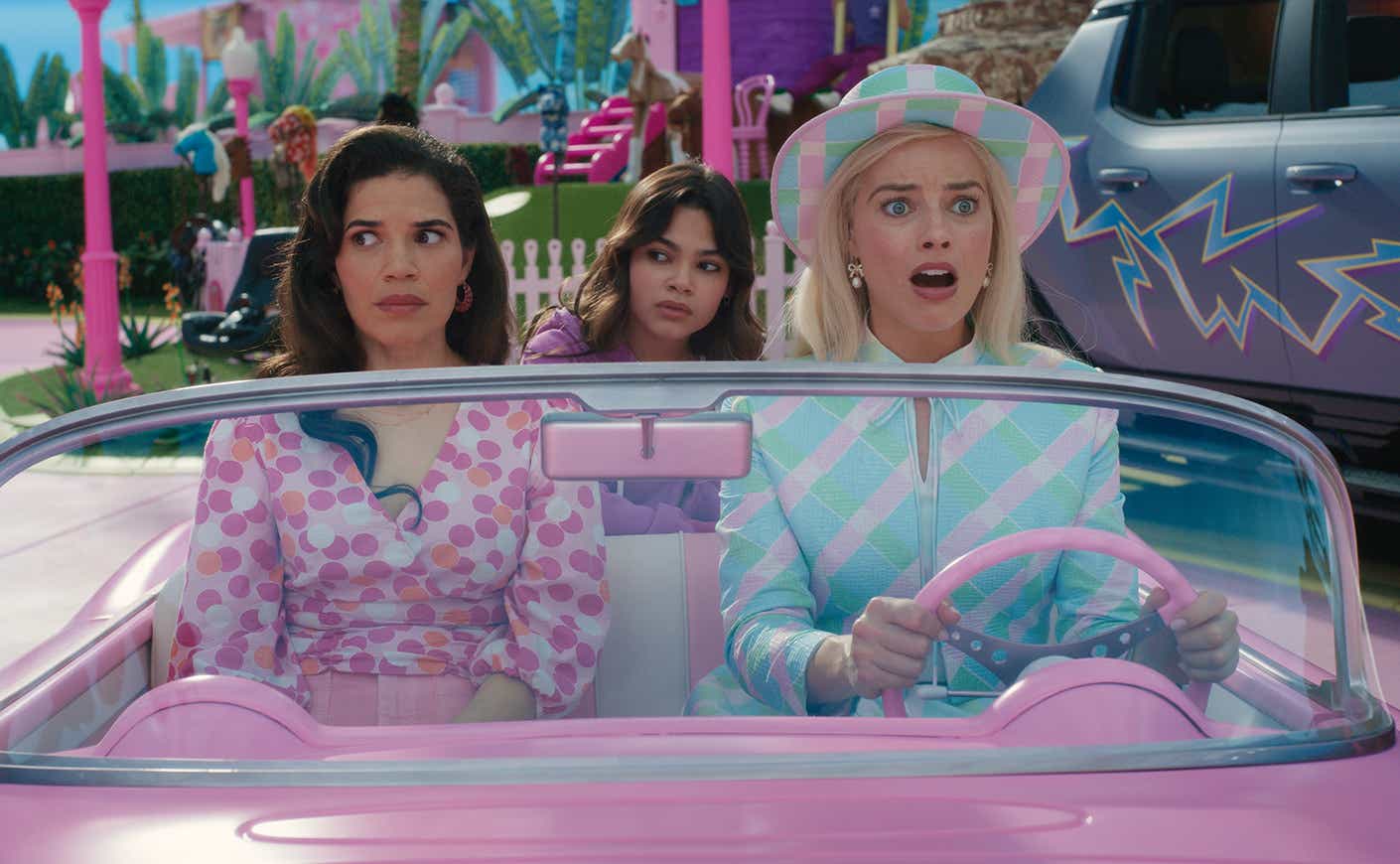Remember when critics said that the Barbie movie was “too basic” and that our world wasn’t that sexist? Well, the film’s lack of Oscars nominations in key categories just proved that the patriarchy is alive, and a little too well.
While the highest-grossing movie of the year worldwide did earn a well-deserved best picture nomination, the director responsible for pulling off that impressive feat did not. While Greta Gerwig received best director nominations from the Directors Guild of America, the Golden Globes and the Critics Choice, her name was notably absent from the list announced by the Academy Awards. The only plausible explanation for her exclusion in a category that she over-performed in is that some Academy voters believe Barbie directed itself, which makes me think they should pass some kind of mental fitness test to prove they live in the same reality as the rest of us.
But Gerwig wasn’t the only woman whose labor went unrecognized. Margot Robbie, who starred in the movie and fought to convince executives that it would have mass appeal, was also curiously shut out of the Best Actress category. At this point, you'd expect that this would mean Ryan Gosling, the movie's male lead, would also be ignored — but no, he did in fact receive a nomination! In other words, the Barbie movie was a test, and we deeply failed.
People say that the Academy lost the original plot of the movie, but they actually brought it to life. According to the most recent data, a whopping 67% of the voting members are men, and 81% are white. This kind of white male overrepresentation makes the Oscars one of the most biased cultural institutions in history. The Academy Awards is basically the Mojo Dojo Casa House, minus the mini-fridges and the La-Z-Boys. While a few women are allowed to temporarily make it through its saloon-like revolving doors, they’re not welcome to stay. Just last year, zero women were nominated in the Best Director category, despite many women, I am being told, directing movies. Only eight female directors have even ever been nominated in 95 years, which is a ratio of 59 males nominated to every 1 woman.
The fact that the two women who created the most wealth for the film industry this year are being neglected and under-appreciated is quite fitting. While female labor is essential, it is often the first to be rendered invisible. To quote America Ferrera in Barbie, who thank god did receive a supporting actress nomination, “it’s literally impossible to be a woman." In a monologue about sexism that will now be unfortunately more relevant, she warns Robbie's character that no matter how hard she works, her talents will be overlooked. "You are so beautiful, and so smart, and it kills me that you don’t think you’re good enough,” Ferrera says. “Like, we have to always be extraordinary, but somehow we’re always doing it wrong."
The Oscar snub, combined with the humiliating treatment that the movie received at the Golden Globes, proves that no matter how hard you work to get to the top, you’re still just a girl.
But while this is upsetting, let’s not get it twisted. This is isn’t an embarrassing moment for women, it’s an embarrassing moment for the Academy Awards. Just because a mostly white male voting base didn’t get the assignment, it doesn’t mean we have to accept their warped view of the world. The Oscars omitting the most successful movie of the year doesn’t make Barbie look bad, it makes them look bad. They’re not proving the irrelevance of Barbie, they’re cementing their own. Just like many turned off their televisions during the sexist Jo Koy Golden Globes monologue, many might not tune into the Oscars ceremony at all. When old institutions refuse to change, they just end up dating themselves, and reducing the number of people who have faith in them. As I’ve often repeated, the Supreme Court only has the legitimacy that we give it — and so do the Academy Awards.
Besides, the news isn't all bad. At least America Ferrara was nominated for Best Supporting Actress, which is spectacular. And some critics believe that this snafu may actually increase the chances that Barbie takes home best picture.
And even if they never get the Oscar nominations they deserve, the record will always show that Gerwig and Robbie revived an industry that felt beyond repair. Before their blockbuster hit, movie theaters across the country were increasingly empty, with the majority of Americans saying they preferred to watch films at home. But a lot of that changed with the summer of "Barbenheimer," sparking a major comeback that many didn’t even believe was possible. Barbie wasn’t just a movie, it was a movement. The summer of Barbie didn’t just change how we viewed women, it changed how we saw films. Gerwig and Robbie didn’t just have fans, they created community.
The irony is that while these two female legends drove millions to the movie theater, the Oscars are losing more and more viewers every year. What a shame that they sidelined the very women who could help them fix that.
This piece originally appeared in Liz Plank’s substack Airplane Mode, which you can subscribe to here.









